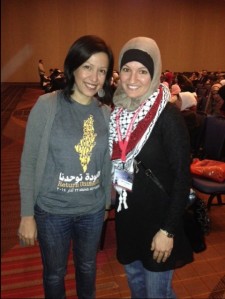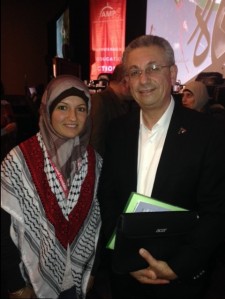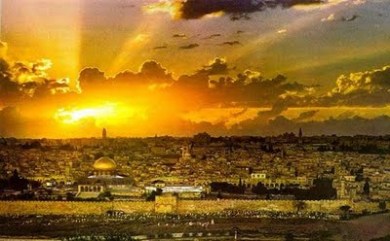” He looked on the silence at the proof of what Israelis already know, that their history is contrived from the bones and traditions of Palestinians . The Europeans who come know neither hummus nor flafel, but later proclaimed them ‘authentic Jewish cuisine’. They claimed the villas of Qatamon as ‘old Jewish homes’. They had no old photographs or ancient drawings of their ancestry living on the land, loving it and planting it. They arrived from foreign nations and uncovered coins in Palestine’s earth from the Canaanites, the Romans, the Ottomans, then sold them as their own ‘ancient Jewish artifacts.’ They came to Jaffa and found oranges the size of watermelons and said ‘Behold!’. The Jews are known for their oranges. But those oranges were the culmination of centuries of Palestinian farmers perfecting the art of citrus growing. ”
Mornings in Jenin is a novel written by Palestinian author Susan Abulhawa. It’s a novel that takes us through the painful history of Palestine by tracing the story of Amal’s family from 1948 right through to present day. It is one of the very few mainstream novels that depicts the story of Palestinians post 1948, nakba, the catastrophe or simply the creation of the state of Israel. And although this is a fictional story of a made up family, it really makes us feel every drop of tear and the deep pain that was felt by Palestinians throughout history.
Pre 1948, Abul Heja family; Yehya and Bassima and their two sons were living in Eid Hod, a small village in Palestine. They owned a house, lived in peace, loved their neighbours, life was simple. When one of their kids marries Dalia and has their son Ismael, the state of Israel was created. Zionists who came from all over the world, particularly Europe invaded their land, destroyed their homes and forced them out of their village and into refugee camps in Jenin. Ismael was kidnapped by Israeli soldiers, this destroys his mother and she is forever changed. They have two more children, Amal and Yousef. Mornings in Jenin allows us to understand the suffering, humiliation and the psychological effects the occupation had and still has on Palestinians. Amal grows up in cramped conditions, poverty and the ongoing fear of guns and violence.
The 6 day war in 1967, or better known as the naksa, tension became dangerously heightened. Palestinians were hoping to go back to their homes but instead Israel was left in control of the Gaza strip, Sinai Peninsula, West Bank, East Jerusalem and the Golan Heights. A quote from the novel that really describes what was happening at the time and that really pierced through my heart is ” They are slowly being erased from the world, from its history and from the future.” Palestinians were being kicked out of their homes yet again, leaving Palestine to nearby countries and to the West, and “Refugees are made refugees again.” As the author describes.
Amal’s mother becomes increasingly isolated in her misery and withdrawn from her children and from life. Her husband dissapears and she never sees him again, as is the story of many Palestinian families who loose their loved ones. Yousef moves to Lebanon, where he gets married. Amal moves to America to study and work. There, she looses herself, changes her name to Amy and lives the American life. After thirteen years of living abroad, Amal decides to go to Lebanon in 1981 where she reconnects with her brother, meets the love of her life Majid, gets married and has her child Sara. They all lived happily in Shatila, a crowded refugee camp in Southern Beirut. Where refugees fled to find safety and security, they were massacred again in the Sabra and Shatila massacre in 1982, where thousands were brutally killed including Majid and Yousef’s wife. All Amal wanted at that moment was to die. She seeks refuge back in America where she becomes exactly like her mother, withdrawn, miserable and resentful of her daughter.
Amal reunites with her brother Ismael, she also learns that her brother Yousef has joined the PLO and is living in exile. After decades of living away from Palestine, Sara forces her mother to visit again. Amal describes to us that after six decades of occupation, Jenin refugee camps have been transformed from what was believed to be ‘temporary’ tents to ‘permenant’ tall crowded buildings, one next to the other. The refugee camp is now labelled “the nurturing home for terrorists.” where apparently Palestinians in this region are committing crimes against Israelis living on their land. People’s faces were no longer hopeful to return to their homes, but instead they were filled with anger and resentment.
The tragic ending of the novel leaves us wondering; How did we come this far? How did the temporary tents become permenant brick homes? How did the rightful land owners become terrorists and the occupiers become the rightful land owners?
Mornings in Jenin is a heartwrenching novel that really allows us to live in Palestine through its detailed painful history.














